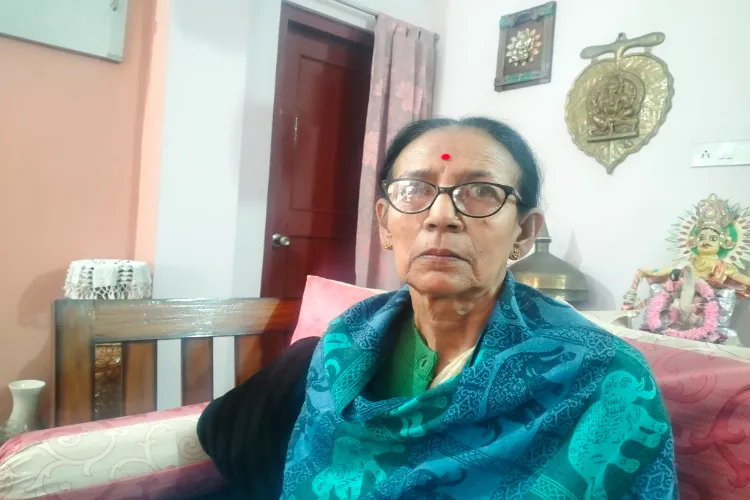
Guwahati
In what will be her life's crowning moment at the age of 70, Assam’s Parbati Baruah, India’s first female elephant keeper or ‘mahout’, will be one among 110 unsung yet distinguished persons to receive the country's fourth-highest civilian honour—Padma Shri—from President Droupadi Murmu.
The honour will be doubly special for Parbati, as she will be the second in the family after her elder sister, Pratima Pandey Baruah, to be conferred with the country's fourth-highest civilian award.
Pratima was conferred with Padma Shri earlier for her contribution to Goalpariya, a popular Assamese folk music.
Speaking to ANI on Friday, Parbati, a scion of the royal family of Gauripur in Dhubri of eastern Assam, said she has been around elephants since she was a child.
Trawling back into the past, she said her family had an elephant mahal, where the jumbos were kept in large numbers after being tamed and domesticated.
“I am very happy to be chosen for this recognition after so many years. I thank all, and, in particular, the state and the central governments for this honour,” Parbati told ANI on Friday.
“I spent the better part of my life with and around elephants. I dedicated my life to their welfare. I kept on doing my work and God has now blessed me with this recognition. I will continue to work in this field. My life is dedicated to elephants and the preservation and welfare of the wildlife in general," she added.
Despite growing up as a royal scion in Dhubri, Parvati's earliest memories largely figure elephants and it wasn't long before she found her true calling—elephant-keeping.
Under her supervision, she has so far trained over 600 wild elephants, besides imparting training to elephant-keepers. She has also toured various parts of the country, taking part in various sessions, seminars, and fairs, among others.
Parbati, who is also known affectionately as 'Haathi ki Pari' (an angel for elephants) became the first female elephant mahout in the country, breaking all gender stereotypes associated with the profession.
She spent over four decades pioneering the efforts towards resolving the human-elephant conflict.
Starting her journey at the tender age of 14, Parbati inherited the skills from her father and 'guru', Prakritish Chandra Barua. She imbibed all her elephant-taming and keeping skills from him.
“I was introduced to elephants when I was a one-year-old infant. We had an elephant mahal in our house with a full complement of tuskers. We still have them. Growing up, a thought would often cross my mind as to whether I can also acquire the skills of handling elephants like my father," she told ANI.
“I asked my father if I could learn the skills. My father said no as it was a male-dominated job. However, I was adamant and learned the skills from him and the nitty gritties around it. I learnt how to deal with elephants, how to heal them, and how to apply herbal medicine to them in case they come down with an ailment. It's a job that one should learn seeing others at work. It cannot be learnt from books," Parbati added.
“Catching hold of an elephant and taming it is not easy as there are risks involved. But I was determined to do it. My father was satisfied with my perseverance and work and it continues to this day," she said.
On her message to the youth and generation-next, she said, "Elephants are benevolent and must loved and cared for. We must learn to coexist with them. Without elephants, our existence will be at stake. Their habitat must, at the same time, be preserved.”
“I request conservationists and governments to conserve our forests and ensure free and unhindered passage of elephants,” she added.
Veering to the human-animal conflict, which is a sad reality of the present times, she said such incidents could be attributed to the everyday assault and encroachment of wildlife habitats.
“Mother nature should not be disturbed at any cost. Collectively, as a society, we have to come forward and make it happen. The government alone can't do it. Every citizen has to take a solemn pledge that he or she would make a conscious effort towards saving nature and conserving forests," she said.
She added that ensuring a safe passage was the key to reducing incidents of human-elephant conflicts.
